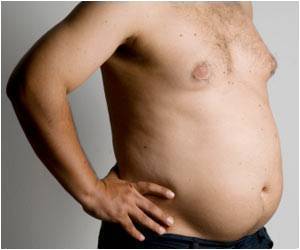Obesity may pose a risk to those who either live far away from available food stores or those who don’t have resources to get inadequate food, finds a new study.

‘In the study, it was found that those who either do not have enough to eat or live in areas without access to stores that sell affordable, nutritious foods were at greater risk for obesity
’





A recent study by public policy professors Alexander Testa and Dylan Jackson at The University of Texas at San Antonio (UTSA) assesses the link between food-related hardships and obesity. Using the data from the National Longitudinal Study of Adolescent to Adult Health (Add Health) and Center for Disease Control's (CDC) Modified Retail Food Environment Index (mRFEI)--a national sample that measures food deserts, their study is the first of its kind to assess the relationship between experiencing food insecurity and living in a food desert on obesity.Food insecurity, by definition, is the inability to acquire adequate food due to a lack of resources. In 2016, an estimated 15.6 million households (12.3 percent) were food insecure. Food deserts are geographic areas where residents do not have access to supermarkets or grocery stores.
Using a national sample of adults across the United States, the UTSA researchers learned that individuals who are food insecure are at an increased risk of obesity. Study results also showed that the individuals who live in a food desert are at an elevated risk for obesity. Together, these findings suggest that Americans who either do not have enough to eat or live in areas without access to stores that sell affordable, nutritious foods are at greater risk for obesity.
Regarding the study results, Professor Testa stated, "Our study highlights the importance of adequate nutrition for health. Millions of Americans do not have enough food to eat and live in communities where affordable healthy food options are not available. To combat obesity, it is important to ensure that people have consistent access to nutritious food."
When taking gender and race into account, the researchers observed that women are more likely to exhibit obesity as a result of food insecurity, compared to men. This may be because women are more likely to shield their children from food insecurity by reducing their own nutritional intake. Overall, Black and Hispanic households are at a higher risk for food insecurity in the United States.
Advertisement
In the future, the authors plan to continue to research how difficulties obtaining nutritious food are related to health problems and explore which types of programs may be effective in improving nutrition and health in the United States.
Advertisement















